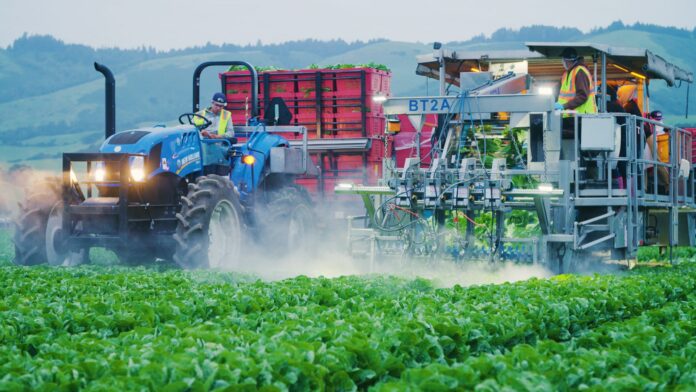Every gardener knows it’s hard to tell the time when to water the plants and if it is tens or hundreds of acres to manage healthy crops while managing water resources carefully, is a difficult task.
For managing, water farmers hand-pluck individual leaves from plants and put them in a pressure chamber then apply air pressure to observe when water starts to leak from the leaf stems. That kind of testing is time-consuming and it means growers can only reach some areas of a field each day and cannot test frequently as needed to accurately determine optimal irrigation scheduling patterns. A team of researchers from UC Merced and UC Riverside received a donation of more than $1M from the U.S. Department of Agriculture through the National Science Foundation to approach the challenge.
As part of the project, the group is developing a robotic pressure chamber that can autonomously sample leaves and directly test them on-site to provide the freshest data. The system gathers data also in large fields rather than just providing a snapshot. Constantly updated data can help the framers to plan irrigation plans to save water, optimize the time and effort spent by crop specialists tasked with determining and analyzing lead water potential, and helps in decreasing some of the costs in the food-production chain.
Current measuring methods include collecting leaf samples and testers use very accurate, expensive pressure chambers or sample and analyzing leaf samples in the field using hand-held pressure chambers. Hand-held tools used can be less accurate, but the test can be done numerous times with different leaves from the same plant. This method is time- and labor-intensive as well as undertaken by trained personnel.
This project will be using the same mobile robot as in RAPID, but include it with a custom-made robotic leaf sampler and pressure chamber as well as pair it with drones that can survey the fields and will direct the robot to areas of interest which were designed by researchers at UC Riverside. This project has four stages: development of the chamber, developing machine vision so that the robot can see the water coming from the leaf stems, coordinating multiple robots in the air and on the ground, and evaluation. The researchers intend to have the 1st set of automated pressure chamber prototypes made by spring 2021 and to evaluate their performance and refine designs in controlled settings by spring and summer 2021. Expect to have complete setup by winter 2022 so that they can begin controlled field testing.
When all of the components are designed, the designs and codes will be made open-source as well as all the data collected during the project will be made available to the scientific community. The project came after Viers and Carpin, director of the Center for Information Technology, research in the interest of society, or CITRIS, at UC Merced, had been talking among area farmers about the difficulties of growing almonds and grapes.

